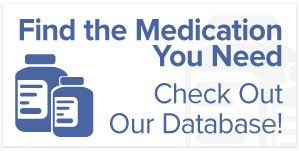Irritable Bowel Syndrome (IBS) is a gastrointestinal condition that is quite common in the world. Constipation, diarrhea, bloating, and abdominal pain are some of its symptoms. Despite the fact that the precise cause of IBS is yet unknown, a number of variables contribute to its high prevalence. We will look at a few of the factors contributing to the prevalence of IBS in this blog post.
The Complex Nature of IBS
The complexity of IBS is one of the main factors contributing to its prevalence. Genetics, environment, nutrition, gut bacteria, and psychological variables are just a few of the many elements that might affect someone with IBS. Due to its diversity, it is difficult to identify a single cause or create a universally effective course of treatment.
Gut-Brain Axis
The bidirectional link between the central nervous system and the gastrointestinal system is referred to as the gut-brain axis. It is essential for controlling several biological processes, such as digestion and mood. Gut-brain axis imbalances have been linked to IBS. This axis can be disturbed by stress, anxiety, and other psychological variables, altering bowel function and resulting in the onset of IBS symptoms.
Modified Bacteria in The Gut
The gut microbiota, which is made up of billions of different bacteria, lives there. According to recent studies, IBS may occur as a result of changes in the variety and composition of the gut microbiota. The equilibrium of gut microbes can be upset by factors like the use of antibiotics, food preferences, and lifestyle decisions, which can result in IBS-related gastrointestinal symptoms.
Trigger Factors and Lifestyle Influences
Some triggers can make IBS symptoms worse. Specific foods, stress, hormonal changes, or even particular drugs may be among these triggers, which can differ from person to person. Additionally, sedentary behaviors, poor food choices, and high levels of stress in modern lifestyles can all contribute to the onset and exacerbation of IBS symptoms.
Food Sensitivities
Many people who suffer from IBS report dietary sensitivity. Gluten, lactose, and several FODMAPs (fermentable oligosaccharides, disaccharides, monosaccharides, and polyols) are common offenders. These food sensitivities can cause gastrointestinal problems in vulnerable people, which increases the risk of IBS.
Misdiagnosis and Underdiagnosis
IBS is frequently diagnosed by exclusion, which means that other gastrointestinal illnesses must first be ruled out before IBS can be identified. However, due to the symptoms being similar to those of other illnesses, misdiagnosis and underdiagnosis are frequent. IBS is more common as a result since many people may not be aware of their ailment or may not have obtained a good diagnosis.
Irritable Bowel Syndrome has a significant prevalence, although no known treatment exists. The control of symptoms and raising quality of life are the main goals of treatment. However, because the illness is heterogeneous and people respond differently to different therapies, it can be difficult to discover a successful treatment strategy. IBS persists and is common in part due to the lack of viable treatment alternatives.

Now Get Your Regular Medicines for IBS at Lowest Prices
Are you suffering from IBS? If so, getting medicine for gut cures without health insurance can be challenging for most low-income American residents. Rx Helper‘s countrywide patient prescription program might help you despite the growing cost of medications in the US. Therefore, schedule your free consultation right away and check how you are eligible for the prescription program!



